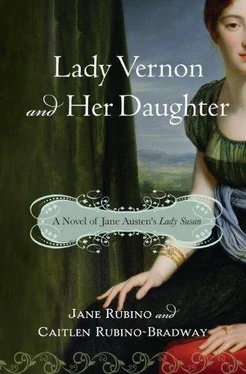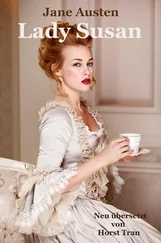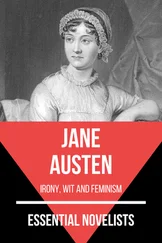Jane Rubino and Caitlen Rubino-Bradway
Lady Vernon and Her Daughter:
A Novel of Jane Austen's Lady Susan
For Professor Mary Ann Macartney,
with thanks for her wonderful Jane Austen seminar


Volume I
Town and Country

A woman with neither property nor fortune must ward off this affliction by cultivating the beauty, brilliance, and accomplishment that will blind a promising suitor to the want of a dowry. When she is securely married, she may suspend her own improvement and turn her energies toward the domestication of her husband and the acquisition of wealthy suitors for their daughters. Still, she must never sink to complacency, but always keep sharp, for it may be her unfortunate lot to survive her spouse and she will be thrown back upon her wits once more.
This principle became the subject of debate one evening between Sir William Martin and his lady. He observed that a young woman of marriageable age must always be accomplished and handsome, while a gentleman was under no such obligation.
“I cannot agree with you, Sir William,” protested his lady. “It is not nature but circumstance that determines how far one must exert. Personal advantages are no less necessary to a male than to a female, save in the case of a firstborn son. He may be as coarse as he likes, but unless he is quite sickly, his younger brothers will be obliged to cultivate a superior mind, a pleasing manner, and a handsome face.”
“Well, if you are right,” answered her husband, who was too good-humored to argue long with his wife, “then it is a fortunate thing for our John that he has them all.”
Lady Martin could not disagree. She favored John over her elder son, William, for the latter was a plain, dry, serious sort of person, while John Martin was a young man of extraordinary good looks and captivating manners.
Upon the death of Sir William, the elder son succeeded to the title and the handsome estate in Derbyshire; he married Miss Elinor Metcalfe, who dutifully presented him with an heir, christened James William, after her father and his. John Martin, meanwhile, was left to secure his future as well as he could, and for some time he deliberated whether he must look to the law, the Navy, the clergy, or marriage to a woman of fortune.
Alas, John Martin had neither talent nor inclination for the law, the sea, or the church. He was not averse to a good match, but he wanted to be happy as much as he wanted to be rich, and while there were many young ladies who were pretty and many who were rich, there were few who were both, and those did not have to settle for a second son.
An introduction to the lovely daughter of a merchant named Osbourne persuaded John Martin that he wanted to be happy more than he wanted to be rich. Miss Susannah Osbourne possessed a beautiful face, an elegant bearing, and a lively wit, and John Martin fell so thoroughly in love as to conclude that they might do very well on his modest fortune and her five thousand pounds. The lady’s affectionate father took a more practical view of the matter and introduced John Martin to an enterprising young man who was connected with a prominent banking house. Lewis deCourcy was a second son himself; his elder brother, Sir Reginald deCourcy, had inherited a large fortune and considerable property, while the younger had to make do with an excellent understanding, diligence, and an acumen for business. Lewis deCourcy was favorably impressed with Martin’s cleverness and handsome manners and had no trouble in securing him a place where he had to do little more than be agreeable to gentlemen of fortune and persuade them to relinquish their money.
Into this happy union came one child, a daughter. Susan Martin was a beautiful girl who became a beautiful young woman without suffering those years of awkward transition. An active mind, a fondness for reading, and acute powers of observation gave her a precocious understanding of the world and supported a respectable measure of accomplishment. She learned to read German, speak French, and sing in Italian. She played the fortepiano in a style that was more emphatic than lyrical, but she was shrewd enough to play only those pieces that suited her spirited fingers. She possessed a keen eye for contour and expression, though her sketches were confined to caricatures of anyone she did not like. To these were added the quickest tongue in repartee, the surest seat on a saddle, the lightest foot on a ballroom floor, and most important of all, an inimitable charm of presence that livened a room when she entered it and left its mark in the dullness that followed upon her retreat.
Susan Martin’s beauty was particularly gratifying to her father, for his natural liberality and want of economy had them always living in a style just above what they could afford and leaving nothing over for her future. “She will have her pick of rich men,” he consoled himself. “For I do not think there is a prettier girl in all of England!”
Well before Miss Martin might express her inclination for anyone, however, her parents settled upon their nephew, James, for their future son-in-law. Although their daughter’s affection for her cousin was expressed in nothing more than the teasing fondness of a sister for a brother, the Martins were not discouraged, for their designs were promoted by Lady Martin, who believed that her impetuous son would feel the want of cleverness in a wife more than he would feel a want of fortune.
Sir William was of an opposite opinion and resolved to do what he could to get rid of his niece before his son lost all sense of obligation to unite his fortune to one of equal measure and tendered his proposal to his fair cousin. As soon as Miss Martin was out, her uncle gave a grand private ball in order to bring his niece together with several single gentlemen who ought to be married and wanted only a few more dances and a few more charming smiles to fix them.
James Martin secured his cousin for the first two dances, which allowed the pair to turn their wit upon the party. “Is this not superior company, Susan?” asked he. “I did not know that my excellent father had so many vain and empty-headed acquaintance! There are three fools to every sensible fellow. Among so many peacocks I will certainly appear to advantage.”
“Or perhaps you can only take pleasure in the company of equals,” she replied archly.
“I take pleasure in whatever is before me, that is my particular talent.”
“To think of nothing beyond the present?”
“Indeed, yes! The past cannot be altered, and the future cannot be known—to dwell upon either will turn one into a fright or a bore.”
“We cannot all enjoy such agreeable indifference, James.”
“You reproach me wrongly,” protested her cousin. “You may think me a fool or a reprobate, but you must never think me indifferent.”
Sir William had been observing this repartee with some apprehension, and at the first opportunity he approached the young cousins with the outward motive of complimenting their dancing. “But you must allow the other gentlemen their share of pleasure or they will feel themselves slighted,” Sir William said to his son. “When your set is done, bring Susan to me, for some acquaintances have just arrived whom I particularly wish her to know.”
Читать дальше















